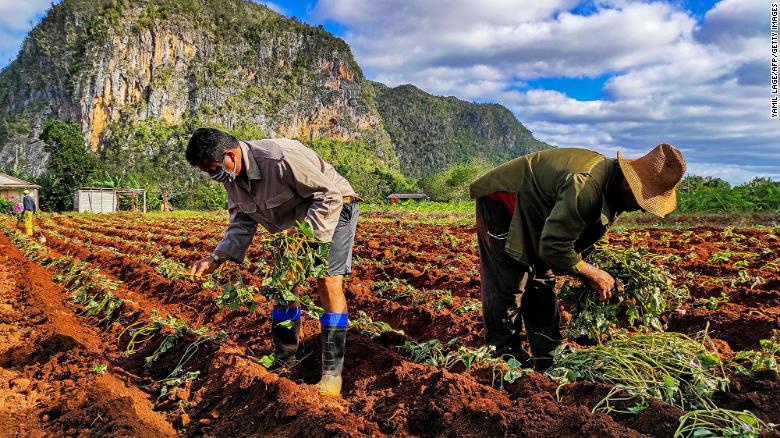Havana (CNN) – Cuba took a long-awaited and probably irreversible step toward the massive expansion of the island’s private sector over the weekend, opening its doors more to capitalism.
On Saturday, the communist government of Cuba announced that Cubans will soon be able to seek employment or start businesses in most labor camps.
Previously, Cubans were restricted to working on just 127 officially approved private sector job descriptions. Some of those activities legalized over the years included working as a barber, tire repairman, palm tree trimmer, or “dandy,” as the government referred to Cubans who dressed to pose with tourists in photos.
LOOK: Juan Manuel Santos asks the US to remove Cuba from the terrorism blacklist
But many Cubans were irritated that the government’s list did not include the opportunities created by recently increased access to the Internet and the seemingly limitless ability of Cubans themselves to innovate and invent.
Now they will have the ability to work in more than 2,000 different fields.
“The new measures for self-employment approved by the Council of Ministers will significantly expand the activities that can be carried out. A new and important step to develop this type of work, “tweeted Cuban official Marino Murrillo Jorge,” the czar of reforms, “who has been monitoring his attempt to modernize the local economy at an icy pace.
Capitalism and self-employment, practically prohibited in Cuba
Self-employment and capitalism were practically prohibited in Cuba until its almost total economic collapse, caused by the fall of the Soviet Union, then the largest commercial party on the island.
Gradually, and with regular setback, the Cuban government allowed Cubans to stop working in low-paid state jobs and go about their own businesses.
According to the government’s own statistics, more than 600,000 Cubans now work in the private sector, although the figure is likely to be much higher considering the island’s thriving black market.
Still, Cuban government officials have often treated the island’s businessmen as a necessary evil and a possible Trojan horse that could allow their opponents in the United States to finally topple the revolution.
And although the official line of Cuban officials is that they have been implementing free market reforms “slowly but surely,” the opening had stalled as the government wondered whether it was wise to further empower Cuban entrepreneurs.
But with the widespread impacts of the pandemic, and as 89-year-old Raúl Castro is expected to resign in April as head of the Cuban Communist Party, the organization that maps out the island’s long-term economic planning, Cuba has finally embarked on. in 2021 on two major reforms: unifying its labyrinthine dual currency system and most recently lifting restrictions on employment.
Some bans will follow on the island
The government will continue to prohibit or restrict Cubans from carrying out 124 activities in the private sector. While those activities are yet to be disclosed, they are likely to continue the state monopoly on healthcare, telecommunications and the media.
The new measure, over time, will likely alter the face of the island’s economy, said Cuban economist Ricardo Torres.
“We do not yet know which 124 activities will remain prohibited, but it is safe to assume that the possibilities for professionals will expand,” Torres told CNN. “An old lawsuit in a country that has made a huge investment in education.”
Cuba tries to improve relations with the United States.
The changes also come as Cuba seeks to improve relations with the United States after four years of a barrage of new economic sanctions by the Trump administration.
“This is long overdue, it is good news, and the United States should affirm that the embargo was never intended, and will not be used, to penalize private companies in Cuba,” Senator Patrick Leahy posted on his Twitter account.
LOOK: In recent years, censorship and repression of culture has returned in Cuba, denounces playwright
“After more than half a century, isn’t it time to repeal a Cold War embargo that has not achieved any of its objectives and has only made life more difficult for the struggling Cuban people?”
Earlier this month, Leahy, a longtime advocate for improving relations with Cuba, co-sponsored a far-reaching bill to lift the nearly six-decade-long US economic embargo on the island.
Cuban entrepreneurs, who have long suffered and been infinitely inventive, will be watching to see what happens.
–


